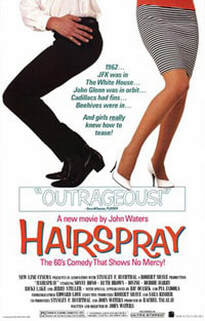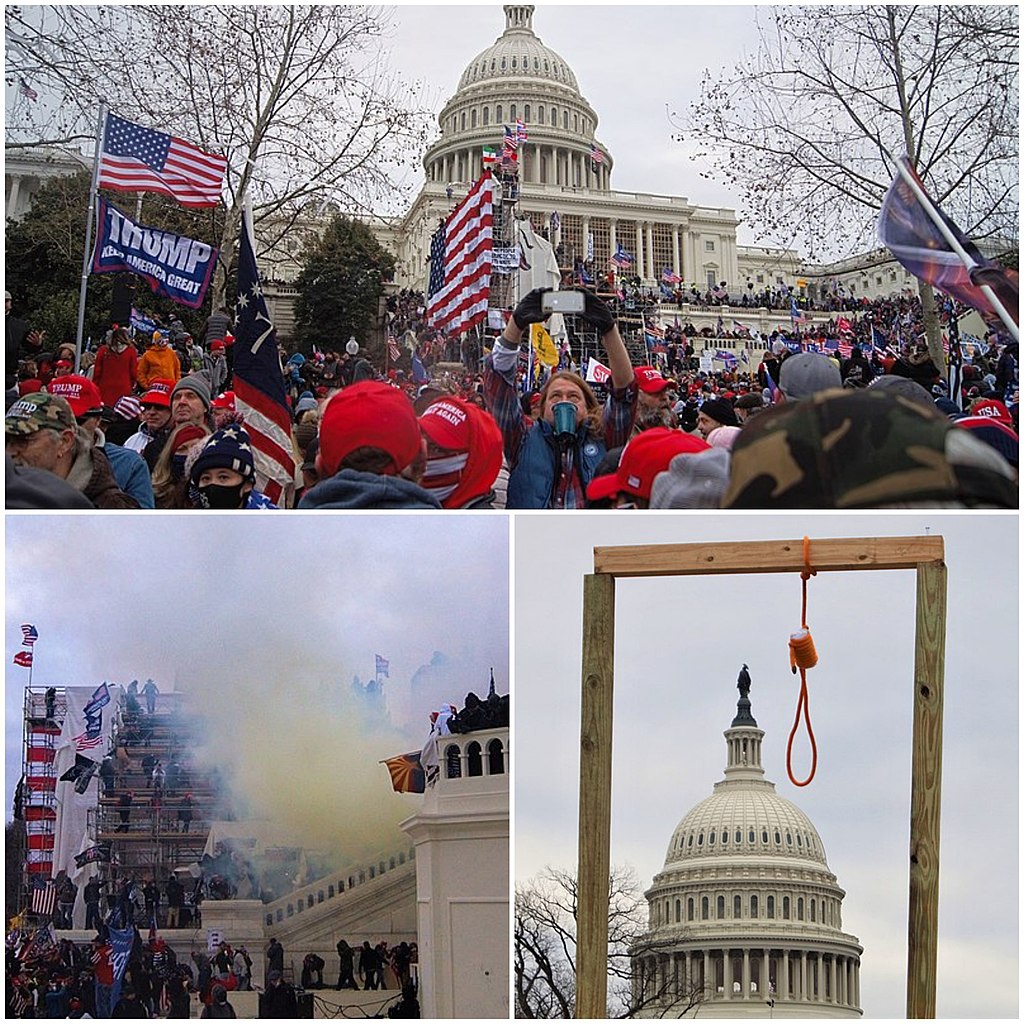 Many years ago, I went to a staged production of Hairspray. This show was based on a 1988 movie by John Waters about a bunch of teenagers living in the city of Baltimore in the 1960s. In the staged production that we saw, the performance would stop at certain times and the author of the original film, John Waters, would speak from a lectern and tell amusing anecdotes about the movie and its actors. In the movie, the dream of the teen characters is to dance in one of the coolest shows on television, a teenage dance show called The Corny Collins Show. Due to the times, the Corny Collins Show is a segregated show where only white teens can dance except for one day a month (Negro Day) when black teens participate. The star of the movie is Tracy Turnblad, played by actress Ricky Lake. Tracy and her friends, both black and white, spearhead an effort to desegregate the Corny Collins Show. At one point, John Waters informed us that the show featured in the movie was based on a real teenage dance show called the “Buddy Deane Show”, which ran from 1957 to 1964. This show was also segregated and only allowed black dancers every other Friday. With the Civil Rights movement at its apex, the pressure to desegregate the Buddy Deane Show mounted, but the home station that ran the show was unwilling to integrate the black and white dancers, so it just cancelled it. At this point, John Waters interjected, “But who needs reality?” In his movie, Tracy and her friends succeed in integrating the Corny Collins show, and all the bigots get their comeuppance. Many years later, this is the moment of that function that I remember best. John Waters saying, “But who needs reality”. Being a scientist, I should, in principle, wince at that statement. After all, scientists are in the business of discovering reality. And we know how important reality is for human beings to live a life grounded in facts and evidence free of the shackles of ignorance and superstition. However, the truth is more complicated. The are millions of human beings in this world living in societies mired in disease, poverty, disenfranchisement, exploitation, discrimination, repression, and violence. For many of these people, the hope that their condition will improve anytime soon, when viewed from any objective point of view, is nothing but a fantasy. Yet, in these societies, individuals ranging from poets, writers, painters, and filmmakers, to political and social leaders or just regular folks, articulate and visualize fantasies that their trials will end one day, and that that their wrongs will be made right. Thus, fantasy can actually play a constructive role in our lives. Fantasy allows us to imagine a better future where good prevails over evil, and we overcome the intractable problems that burden us, to be free in that happily ever after ending, where the just are rewarded, and the wicked are punished. From fairy tales to movies such as Hairspray, fantasy can be a powerful motivator for change and a source of strength and inspiration that moves us to dream, hope, and act. But fantasy can also be a destructive force, and we all had the opportunity to witness this on January 6th of 2021 when a mob of people stormed the U.S. Capitol Building to stop the counting the electoral college votes of the American people, to harm our elected representatives, and to overturn a fair and free election. These people had been told the lie that the election was stolen, and they believed it to the extent that they were willing to risk their livelihood, their freedom, and their lives to contravene the will of the majority of their fellow Americans. I want to clarify here that I am not making a political point. All the evidence we have indicates that the 2020 election was not stolen. This is an objective description of reality. Arguing otherwise is unreasonable. Now we come to the crux of my argument, which I am presenting here as my opinion. Most fantasies have at their core grievances that are real. But what is the grievance that spawned the fantasy that led to the denial of the election results and fueled January 6th? The people involved in these activities had been told for years that there is a cabal of nefarious entities such as the elites, the deep state, the fake news media, liberal Marxists, environmentalists, atheists, LGBT people, and others who hate them and their way of life. And these entities allegedly seek to control or destroy them by several means including manipulating the laws, the schools, the elections, the government, and other things. This is the bogus grievance which has spawned the fantasy among these people that they are under attack, and thus they need to strike back and defeat those who threaten them before it is too late. And after they do so, they will usher in a new era in our republic where their way of life will be safe once again and the bad people will be punished. When this fantasy is accepted, facts, evidence, and reason become irrelevant, and trust in our institutions and their safeguards against abuse of power become non-existent. This is how a fair and free election became a “fraud” where their votes were cancelled and their candidate was denied his rightful victory. This is how a call to a protest, where they were told that if they didn’t fight like hell and show strength they wouldn’t have a country anymore, was interpreted as a directive to attack the very heart of our democracy while they risked life and limb in doing so. This is the frightening power of fantasy. When it arises out of the noblest desires of humanity for a better future, it can be a formidable constructive force, but when it arises out of fear and ignorance fed by lies and misinformation, it can become a formidable force of destruction. The United States Capitol attack collage by Aca1291 is used here under an Attribution-ShareAlike 4.0 International license. The Hairspray movie poster is used here under the doctrine of Fair Use.
0 Comments
Your comment will be posted after it is approved.
Leave a Reply. |
Details
Categories
All
Archives
June 2024
|

 RSS Feed
RSS Feed